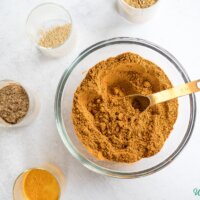Nutrition is crucial in maintaining optimal eye health and preserving vision throughout life. Just as a balanced diet supports overall physical well-being, specific nutrients, and antioxidants can directly influence the eyes’ health and reduce the risk of age-related vision problems. Understanding how diet impacts vision can empower individuals to make informed dietary choices to protect their eyesight as shared by Dr Kajal Kataria, Cataract & Refractive Surgeon, Dr Sachdev Maxivision Eye Hospital, Surat.
One of the key nutrients essential for eye health is vitamin A, which is critical for the proper functioning of the retina and the production of visual pigments necessary for low-light and colour vision. Foods rich in vitamin A include carrots, sweet potatoes, spinach, kale, and liver. Consuming adequate amounts of vitamin A can help prevent night blindness and support overall retinal health.
Similarly, vitamin C, a powerful antioxidant found in citrus fruits, berries, bell peppers, and broccoli, plays a vital role in maintaining the health of the eye’s blood vessels and reducing the risk of age-related macular degeneration (AMD) and cataracts. Vitamin C also supports the regeneration of other antioxidants such as vitamin E, further protecting the eyes from oxidative stress and damage.
Another important nutrient for eye health is omega-3 fatty acids, particularly docosahexaenoic acid (DHA) and eicosapentaenoic acid (EPA). In fatty fish like salmon, mackerel, and trout, as well as in flaxseeds, chia seeds, and walnuts, omega-3 fatty acids are integral components of the retina and help maintain healthy retinal function. Research suggests that regular consumption of omega-3 fatty acids may lower the risk of AMD and dry eye syndrome.
Furthermore, lutein and zeaxanthin, carotenoid antioxidants abundant in green leafy vegetables, corn, eggs, and orange peppers, are known to accumulate in the macula of the eye, where they act as natural filters against harmful blue light and oxidative damage. Adequate intake of lutein and zeaxanthin has been associated with a reduced risk of AMD and may improve visual performance and contrast sensitivity.
In addition to specific nutrients, a diet rich in fruits, vegetables, whole grains, lean proteins, and healthy fats provides essential vitamins, minerals, and antioxidants that support overall eye health and reduce inflammation. Conversely, a diet high in processed foods, refined sugars, and unhealthy fats may contribute to oxidative stress, inflammation, and an increased risk of eye diseases.
Nutrition plays a pivotal role in maintaining optimal eye health and preventing vision problems associated with aging. By incorporating a diverse range of nutrient-rich foods into their diets, individuals can support the health of their eyes and reduce the risk of conditions such as AMD, cataracts, and dry eye syndrome. Prioritizing a balanced diet that includes foods rich in vitamin A, vitamin C, omega-3 fatty acids, lutein, and zeaxanthin can contribute to lifelong vision wellness and quality of life.





